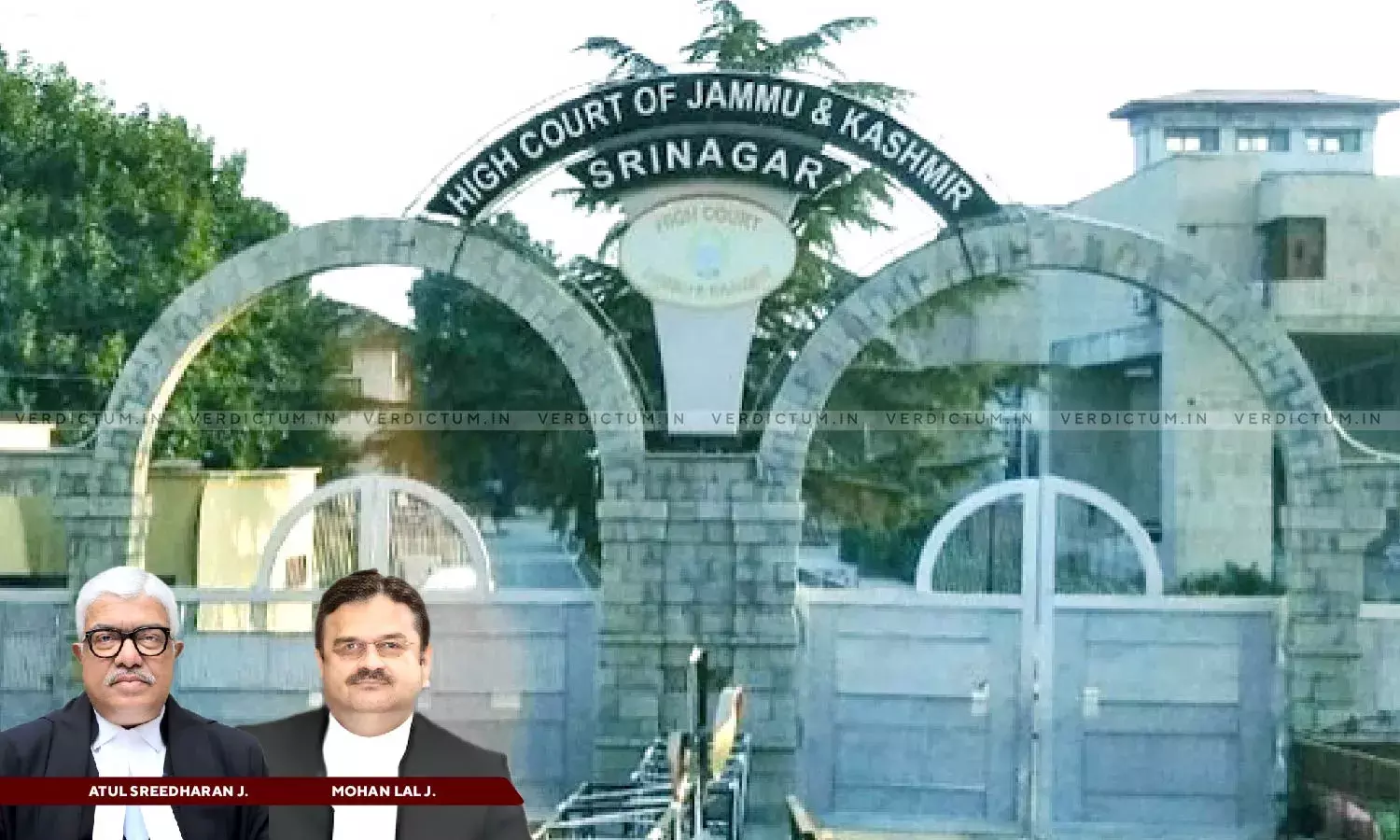UAPA- Bail Can Be Granted If It Is Not Shown How Accused Is A 'Clear & Present Danger' To Society: J&K And Ladakh HC
The Jammu and Kashmir and Ladakh High Court observed that bail can be granted to individuals accused under the Unlawful Activities (Prevention) Act, 1967 (UAPA) if the investigating agency fail to show that granting bail would pose a clear and present danger to society.
The Court observed thus while allowing bail to a person accused under 13 and 18 of the UAPA and Sections 35 and 39 of the Foreign Contribution (Regulation) Act, 2010 (FCRA).
The Court emphasized that determining whether the accused poses a clear and present danger cannot be based on a standard rule, instead it must be evaluated in the context of the particular facts and circumstances of each case.
"The existence of prima facie evidence against the accused is to no avail if there is no justification for the arrest based on the doctrine of clear and present danger to the society. If the investigating agency does not satisfy this Court and is unable to justify the arrest (as warranted in Joginder Kumar) the same would result in the violation of the rights of the accused under part III of the Constitution as adumbrated in K.A Najeeb‟s case, and the accused may be enlarged on bail.", the Bench comprising Justice Atul Sreedharan and Justice Mohan Lal observed.
Senior Advocate P.N. Raina appeared for the Appellant and Senior Additional Advocate Generals Monika Kohli and Mohsin Qadri appeared for the Respondents.
A Criminal Appeal was filed under the National Investigation Act, 2008 (NIA) by the Appellant, challenging the order of the Special Judge. Additionally, a petition under section 482 Criminal Procedure Code (CrPC) was filed against the order, where charges were framed against the Appellant under various sections, including 13 and 18 of the UAPA, 121, 153B, and 201 IPC, and 35 and 39 of the FCRA. The Special Judge’s order addressed both the bail application and the criminal revision against the charge-framing order. Aggrieved, the Appellant approached the High Court challenging the order of the Special Judge.
The Court framed the following issues:
“Whether, section 43D(5) of the Unlawful Activities (Prevention) Act, 1967, where despite the existence of a prima facie case against the accused, the absence of a “Need to Arrest” would result in violation of the right to life of the accused under Article 21 of the Constitution
Whether the Court can still grant bail on account of the violation of Article 21 even though a prima facie case is made out against the accused?
whether the concept of “Clear and Present Danger” ought to be taken into account by the Courts while deciding a bail application where the bar under section 43D(5) is applicable?”
The Court emphasized the fundamental principle of criminal law; requiring clarity and unambiguous language in statutes, especially when significant sanctions like imprisonment are involved. The Court noted that clear statutes are those that need no interpretation by the courts and are understandable by the average person. The need for clarity in legislation is highlighted, stating that unclear laws make legality unattainable and can be more damaging than honest vagueness.
Additionally, the Court reiterated that the existence of statutory restrictions like Section 43-D(5) of the UAPA does not, in itself, prevent constitutional courts from granting bail when there is a violation of fundamental rights enshrined in Part III of the Constitution.
The Court discussed the discretionary power of the police regarding arrests, emphasizing the need for justification beyond the mere existence of the power to arrest. The Court highlighted the potential harm caused by unjustified arrests to an individual's reputation and self-esteem.
Furthermore, the Court observed that the power to arrest includes the decision not to arrest if there is no need to do so, depending on the nature of the offense and the individuals involved. The arbitrary use of the power to arrest is considered a violation of Article 14 of the Constitution, the Bench added.
The Court also delved into the circumstances justifying arrests under the UAPA and observed that arrests without legal justification would violate Articles 14 and 21 of the Constitution. The Court while discussing the interplay between the proviso to section 43D(5) of the UAPA and constitutional rights, cited Union of India v K.A. Najeeb [(2021) 3 SCC 713]. The Court also noted that determining whether the accused poses a clear and present danger cannot be based on a standard rule; instead, it must be evaluated in the context of the particular facts and circumstances of each case.
The Bench observed that the Appellant’s arrest under section 18 of the UAPA is not justified, as there is no prima facie evidence showing that the act falls within the definition of a terrorist act under section 15 of the UAPA. However, there is sufficient prima facie evidence to proceed with charges under section 13 of the UAPA and sections 35 and 39 of the FCRA.
Accordingly, the Court granted bail and set aside the order of charge framing.
Cause Title: Peerzada Shah Fahad v UT of J&K and Anr




